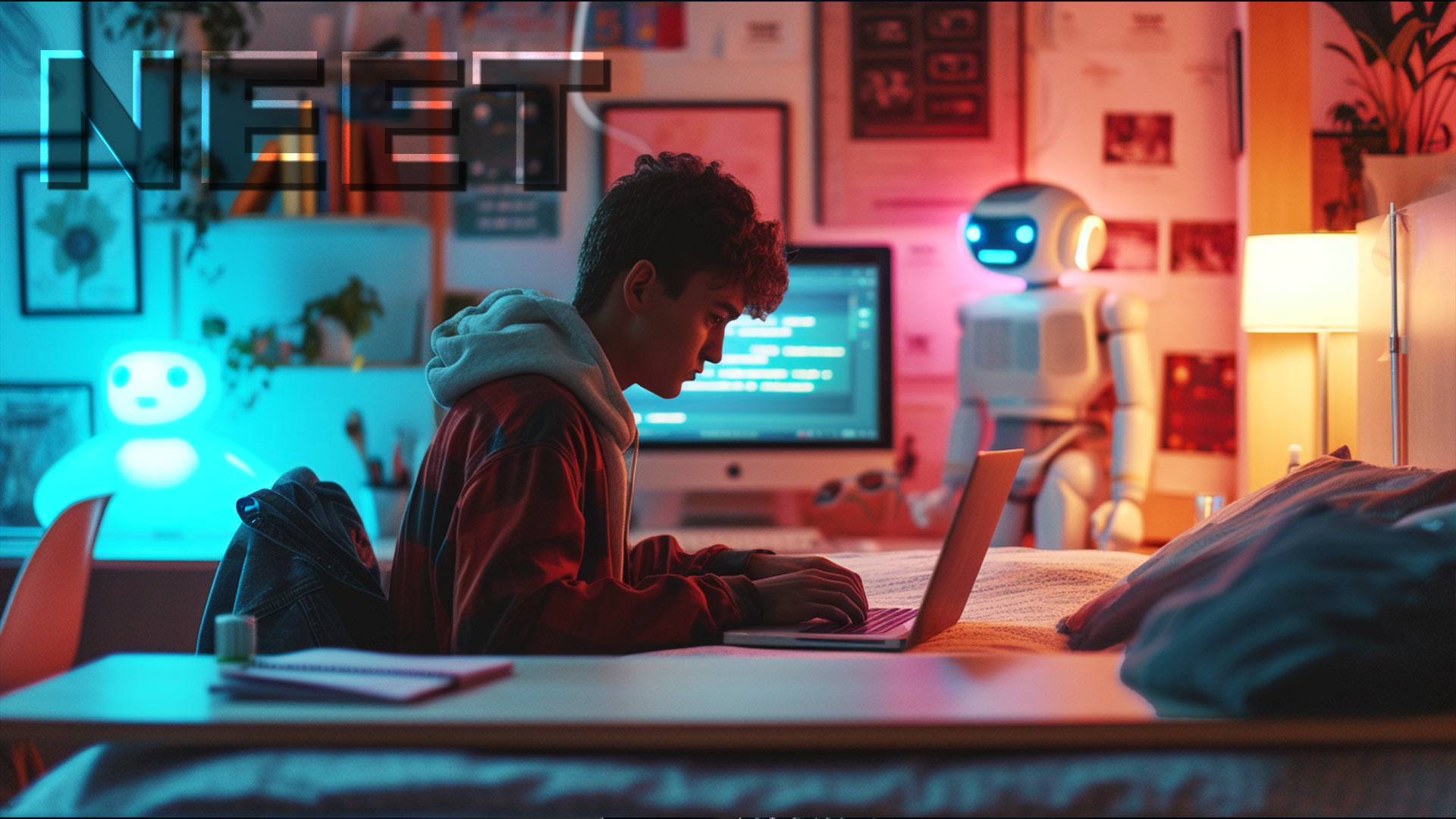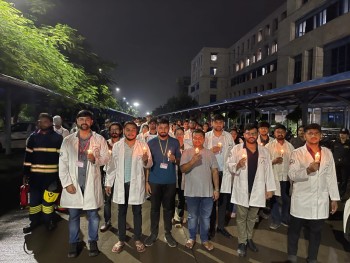Introduction
The recent incident of a 19-year-old NEET aspirant's suicide in Kota, Rajasthan, tragically highlights the severe mental health challenges and immense pressure faced by students within India's intensely competitive exam culture. This heart-wrenching event underscores the pressing necessity for a comprehensive approach to address the escalating mental health crisis in educational settings, especially in coaching hubs like Kota. Critical to this approach is the collaboration of various stakeholders, including parents, educators, coaching institutes, and government bodies. In this context, Artificial Intelligence (AI) emerges as a promising tool, offering advanced capabilities to detect early signs of mental distress and suicidal tendencies in students, thereby enabling timely and effective interventions.
By analyzing patterns in behavior and communication, AI can potentially identify warning signs of suicidal tendencies in students. However, this application raises important ethical considerations and necessitates a balanced approach with human oversight.
AI in Mental Health: Capabilities and Applications
AI's integration into mental health services, especially for early detection of suicidal behavior, represents a significant technological advancement. AI algorithms can process and analyze vast quantities of data, identify patterns, and provide insights that might be undetectable by human observation alone.
Digital Footprint Analysis
- Social Media Scrutiny: AI can analyze social media posts for changes in language use, sentiment, and posting frequency. It looks for markers indicating distress, such as expressions of hopelessness or loneliness.
- Text and Speech Analysis: Beyond social media, AI can examine text messages, emails, and spoken words for emotional distress signals. This includes changes in tone, frequency, and the context of messages.
Behavioral and Predictive Analysis
- Digital Behavior Monitoring: AI systems can track online behaviors like search histories and browsing patterns, which might reveal early signs of mental health issues.
- Predictive Risk Assessment: AI can help develop models predicting the likelihood of suicidal behavior by analyzing historical data, thus identifying at-risk students early for timely intervention.
Active Monitoring and Intervention with AI
- Wearable Technology: AI-driven wearables can monitor physiological indicators like heart rate variability and sleep patterns, offering insights into mental states.
- AI-powered Mental Health Apps: Chatbots and apps can provide psychological support, engage users in conversation, assess their mental state, and guide them towards seeking professional help if necessary.
Enhancing Therapy with AI
- AI Insights in Counseling: AI can offer therapists valuable insights based on data analysis, helping to tailor therapy sessions more effectively.
- AI as a Supplementary Tool in Therapy: AI tools can be used for homework assignments in therapy, monitoring mood and progress, and providing additional support.
Ethical and Privacy Concerns
- Privacy and Consent: The use of AI in monitoring mental health raises privacy concerns. Ensuring data collection and analysis with the individual's consent and in compliance with privacy laws is crucial.
- Accuracy and Reliability: The reliability of AI systems in identifying at-risk individuals accurately is vital. Continuous refinement of AI models is necessary to avoid false positives or negatives.
- Bias and Cultural Sensitivity: AI systems must be free from biases and sensitive to cultural differences in behavioral expressions.
The Human Element in AI Application
- Human Oversight: AI should complement human elements in mental health care, not replace them. Human interpretation and empathy remain essential in acting upon AI's findings.
- Building Trust: For AI to be effective, building trust with students is essential. They should feel that AI tools are supportive, not judgmental or punitive.
- Collaboration Between AI and Professionals: The most effective use of AI in detecting suicidal behavior is as a collaborative tool that complements the expertise of mental health professionals.
Conclusion and Future Directions
AI offers groundbreaking potential in mental health, particularly in early detection of suicidal tendencies among students. Its implementation, however, must be handled with careful ethical consideration, privacy concerns, and cultural sensitivity. The human aspect – therapists, counselors, or educators – remains irreplaceable, with AI serving as a powerful supporting tool. The future of AI in mental health is promising, with ongoing advancements and growing recognition of its potential in saving lives through early detection and timely intervention.
Challenges and Opportunities
The journey of integrating AI into mental health services for students is not without challenges. Balancing technological innovation with ethical responsibility, ensuring data security, and maintaining the human touch in mental health care are some of the key challenges. However, the opportunities presented by AI in revolutionizing mental health care, especially for vulnerable student populations, are immense. By harnessing AI's capabilities while upholding ethical standards and emphasizing human empathy, we can move towards a future where mental health support is more accessible, effective, and proactive.
Collaborative Efforts for a Holistic Approach
For AI to effectively contribute to the early detection of suicidal behavior in students, a collaborative effort involving educators, mental health professionals, AI experts, and policymakers is essential. Developing comprehensive strategies that leverage AI's strengths while addressing its limitations will be key to its success in this vital area.











Recent comments
Latest Comments section by users
Guest
Jan 29, 2024
The real cause for suicidal episodes is reservation. When 72% seats are reserved, the stress level of general category students will also be 72%. NO student from reserved category EVER commits suicide! Is there reservation in any other country in the world? NO.